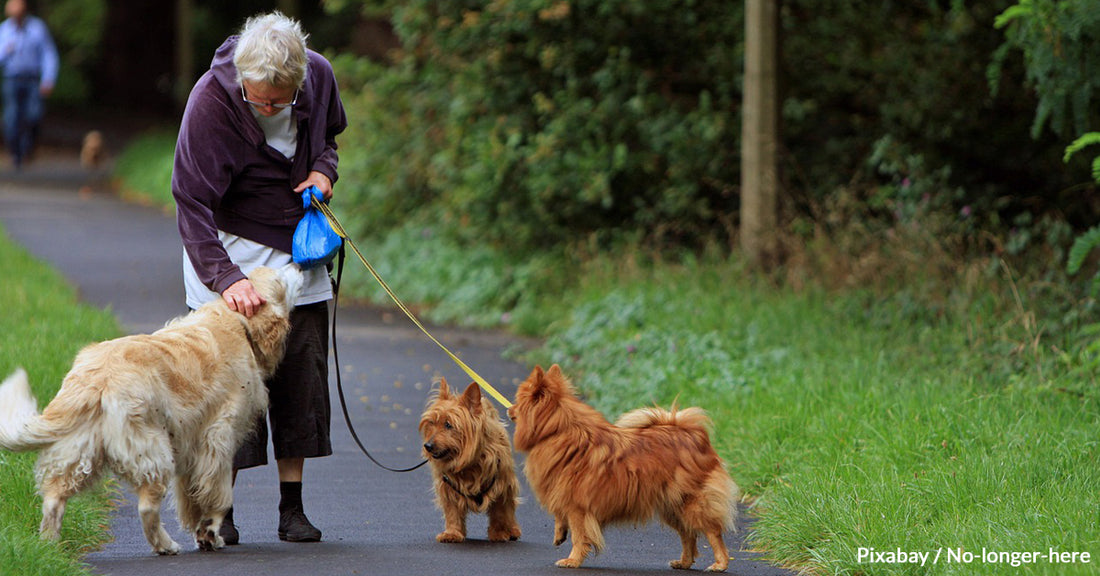4 Important Tips for Caring for Senior Dogs
Louise Peralta
As we all grow older, we require a bit more care, in every sense of the word. This applies to both humans and animals.
Your baby dog may not be so baby anymore eventually, or you may already have an older dog in your care, and I’m here to share some tips on how to look after your fur baby even if they’re past their prime.
Activity
Many people make the mistake of dramatically reducing the amount of activity their dogs get once they become older; this is because they’re afraid that their senior dogs might get injured in some way if they let them play around as they used to when they were still young.
As much as we want to protect our senior dogs, regular but slightly reduced exercise is still important for their health. This will help them keep a healthy body and even provide them some mental stimulation as well.
Walking is a great and proven way to give your senior dog the regular exercise they need, take care not to walk them if the weather’s too cold or hot, as older dogs don’t tolerate extreme temperatures well.
Diet
Maintaining a healthy diet is essential to dogs of all ages. Senior dogs, however, have slower metabolisms, so cutting back on calories while still meeting their nutritional needs is necessary for their diet.
Senior dogs are prone to obesity as well since they don’t expend as much energy throughout the day with their reduced activity, all while owners don’t usually adjust the amount of food that they give. Risks of careless diets in senior dogs include damage to joints and bones, heart problems, and respiratory problems.
My own senior dog’s appetite has significantly decreased, and smaller but frequent feedings work well with her. Some experts explain that appetite loss is because of an aging dog’s dental decay; Most suggest that if your senior dog has problems with eating hard foods, you should consider soaking their food first with a bit of water, or slowly switch them to a wet food diet.
Grooming
Old but still fabulous! Age also affects a dog’s fur and skin. Regular grooming improves a pet’s comfort level in general, as it helps prevent matting and tangles, especially for long-haired breeds, which can be uncomfortable and even painful. Regular brushing should prevent this from happening.
When it comes to bathing older dogs, it’s important to use warm water and a gentle shampoo. For drying, use a towel first to absorb as much water as possible before using a blow dryer. Take care that the blow dryer isn’t too hot; keep it on the lowest setting if possible. Remember, if it’s too hot for you, it’s too hot for your dog as well.
If you personally groom your pets, this also gives you some quality time with your aging dog. Perfect time for bonding! While you’re grooming your fur baby, you can take this time to assess your dog’s health by checking whether there are significant physical changes. Look at the condition of their teeth and skin, and even feel for lumps/bumps that you could report to your vet.
Vet Visits
The dreaded visits, yes. We don’t like admitting it, but I think most of us are guilty of not fulfilling regular, yearly visits to our pet’s vets. There are even those who only visit their vets as a last resort whenever their dog is sick, opting to do at-home treatments first.
Since senior dogs are more vulnerable and sensitive to health issues, vets suggest biyearly checkups for our older pets. It’s also important to note any changes you deem important in your pet’s behavior and report them to the vet; even a change in urinary frequency can be a sign of some changes in your senior dog’s health.
Expect a full physical examination, blood tests, and urine tests for your senior dog’s checkups.
Let’s face it. Vet visits can be costly. But prevention is always better and cheaper in the long run, than treatment, and your pet will have a better quality of life. According to financial advisors, allocating a part of your budget or savings for your pets is recommended. “Families should earmark $5,000 to $10,000 in the family emergency fund for a pet,” CNBC says. Pet insurance can also be a great option.
“You lower the odds (of sick or injured pets) if you are proactive about preventive healthcare and set aside some money or invest in pet insurance. That way, should the occasion arise, you can afford the technically advanced care that is available to your pet today,” said Dr. Nan Boss, veterinarian and owner of Best Friends Veterinary Center.
Follow these tips to make sure our senior dogs live the rest of their lives healthily! These are just general tips though. Make sure to check in with your vets if there is any special, breed-specific care that you might need to do for your pets. All the best, fur parents!







